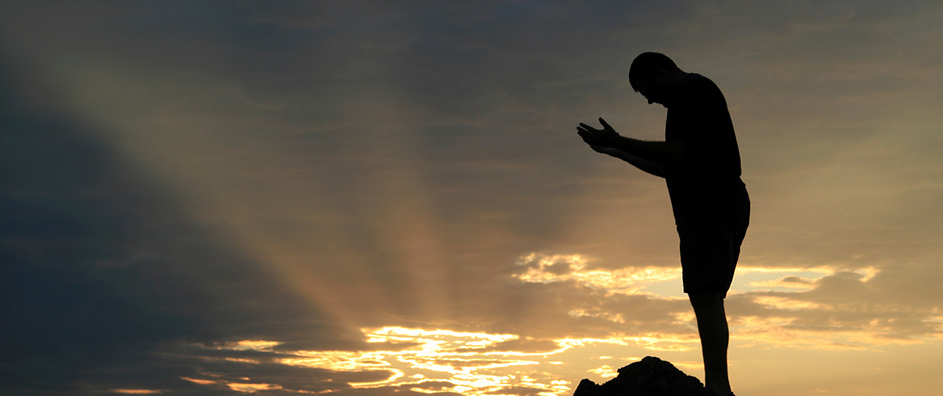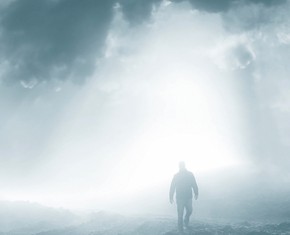The views expressed in our content reflect individual perspectives and do not represent the authoritative views of the Baha'i Faith.
Sooner or later, we all ask ourselves this basic human question: “How could an All-Loving, All-Merciful, All-Gracious God allow such terrible things to happen?”
But have you ever asked yourself this corollary: “Why do good things happen? Why do miracles happen?”
Certainly the universe seems silent, neutral, indifferent and uncaring on those important questions.
Yet we ascribe many things to God, or more accurately, to God’s intervention. We often say after a catastrophe or personal setback, “It could have been much worse,” which is a kind of acknowledgement of receiving some grace in our poor human existence.
So why, every hour, do we read about or watch a miracle? If you really look, the world seems filled with miracles. I mean, Facebook alone contains thousands of unexpectedly miraculous outcomes, which show the silly things people do that look imminently fatal to when they stand up unharmed.
As rational beings, when there simply is no physical or outward explanation for such miraculous occurrences, it’s easy to think out loud, “Boy, he was lucky!” We might attribute it to pure luck, but we know for a certainty that “luck” only means we’ve been the recipients of beneficial circumstances.

The human race has grown up with miracle upon miracle from its infancy—from the “miracle” of controlling fire, to the “miracle” of flying 500 people across vast distances in the sky in a jet, to hundreds of accounts of miracles in the world’s holy scriptures. We almost expect miracles now, because we’re so bombarded with technological marvels every day—which would all be miracles to the people of the past. Heck, to the people of last year.
Yet miracles cannot be relied upon because they are not universal, are fleeting, and can sometimes be reasoned away. The Baha’i teachings view miracles as no proof of anything:
But in the Sacred Scriptures a special terminology is used, and in the sight of the Manifestations of God these marvels and miracles are of no importance, so much so that They do not even wish them to be mentioned. For even if these miracles were considered the greatest of proofs, they would constitute a clear evidence only for those who were present when they took place, not for those who were absent. – Abdu’l-Baha, Some Answered Questions, newly revised edition, p. 113.
Yet the concept of “miracles” has become part of our lexicon, to explain happy occurrences where no probable cause exists.
So, if a miracle happens, has God intervened? Has God taken a part, even a small one, to guide an outcome? I learned as a young boy in catechism class that, “God is everywhere, knows everything, and is the cause of all creation.” Yet it seems more people cite miracles than the few who actually receive them.
It may help to think about miracles this way: as the physical symbols of the true miracle of spiritual transformation:
Our meaning is not that the Manifestations of God are unable to perform miracles, for this indeed lies within Their power. But that which is of import and consequence in Their eyes is inner sight, spiritual hearing, and eternal life. Thus, wherever it is recorded in the Sacred Scriptures that such a one was blind and was made to see, the meaning is that he was inwardly blind and gained spiritual sight. – Ibid., pp. 115-116.
Obviously the holy prophets and manifestations of God, even the lesser prophets of Israel described in the Old Testament, all had the power to perform miracles or benefit from them, like Daniel in the lion’s den. If we believe our scriptures, miracles do exist and can be called into existence.
But I ask you, could it also be that the lions were particularly well-fed that day Daniel was thrown to them?
So the final question becomes: Do we beg God in prayer for a miracle, or do we exert effort ourselves and with others to cause that “miracle?” And what’s wrong with hedging our bets and doing both simultaneously?
In other words, do we test God to prove he is God? Or do we, as His servants, thank Him for the natural good we see in our lives and in others and in the world?
Or, simply, do we believe what Christ trusted in almost 2,000 years ago: “Thy will be done, on earth as it is in heaven.”
It’s always your choice.
















Comments
Sign in or create an account
Continue with Googleor